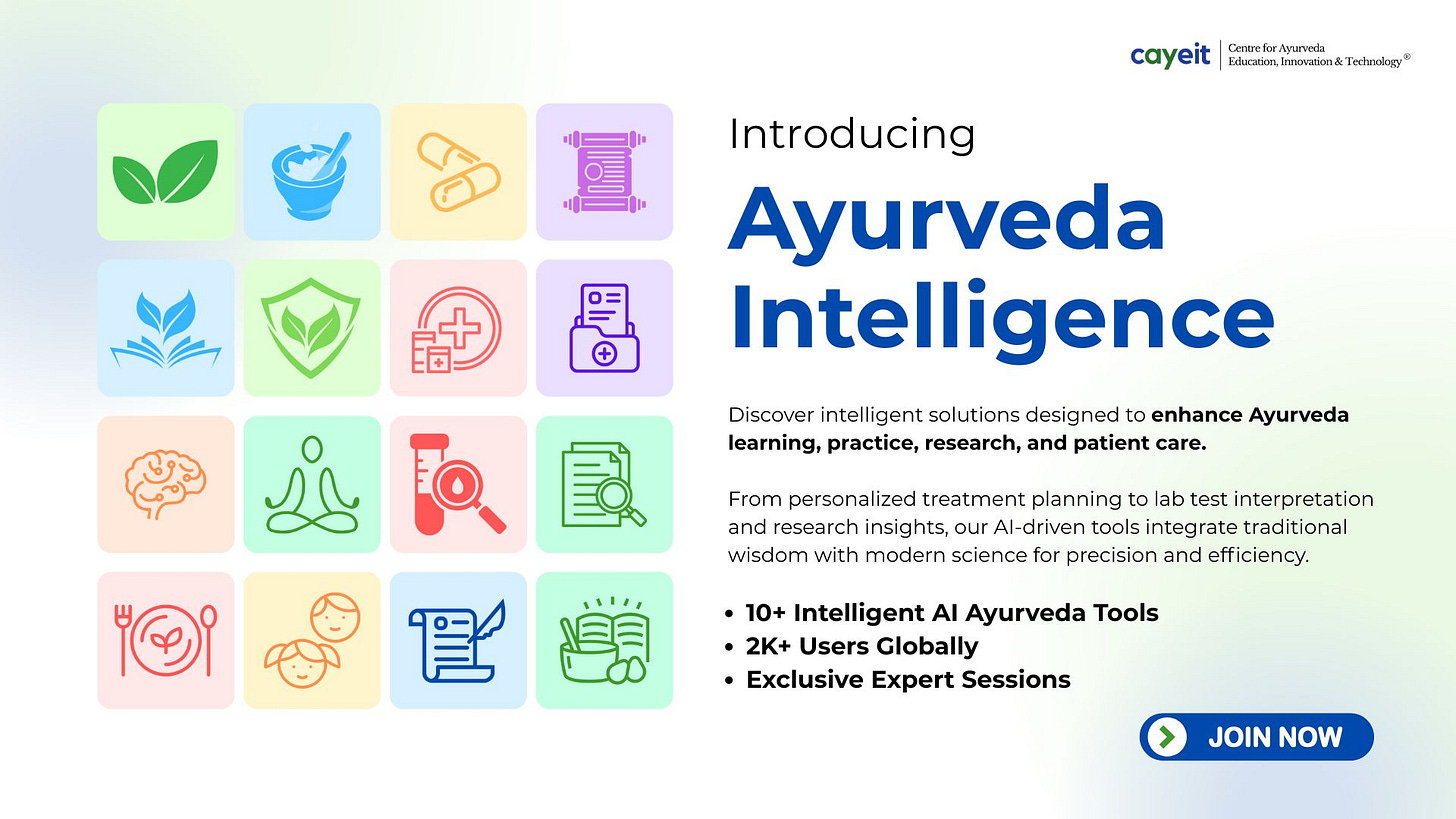Ayurveda for Happiness
Ayurveda Post | Issue #20 (March 2025)
In a world increasingly focused on GDP and material growth, happiness often feels like a moving target. Yet ancient Ayurveda reminds us that true happiness is not a fleeting emotion—it is a stable state of harmony between body, mind, and soul.
This month, as the world celebrates the International Day of Happiness on March 20, and reflects on insights from the World Happiness Report 2025, we turn to Ayurveda for a deeper understanding of happiness-Sukha-as a state of balance, contentment, and spiritual well-being. In Ayurveda, happiness is not an abstract goal, but a measurable outcome of living in accordance with one's nature (Prakriti), guided by ethical conduct (Sadvritta), balanced doshas, and clarity of mind.
Let us dive into Ayurvedic insights on cultivating happiness through benevolence, mindful living, diet, social bonds, and emotional regulation-echoing global findings on kindness, connection, and care from this year’s World Happiness Report.
Chief Editor
Ayurveda defines happiness (Sukha) as the result of equilibrium-between doshas, dhatus, malas, senses, mind (Manas), and soul (Atma). This holistic concept is affirmed in Charaka’s definition of health:
"प्रसन्नात्मेन्द्रियमनाः स्वस्थ इत्यभिधीयते" – Charaka Samhita, Sutrasthana 1.41“He is considered healthy whose soul, mind, and senses are in a state of bliss.”
This aligns with the World Happiness Report 2025, which underscores that social support, freedom, and benevolence-donating, helping others, volunteering—strongly correlate with happiness. Ayurveda anticipated this: by practicing Achara Rasayana (ethical behavior) and Sattvavajaya Chikitsa (mental healing), we nourish the Sattva Guna, fostering joy and clarity.
Feature Story: Ayurveda’s Blueprint for Lasting Happiness
Modern research affirms what Ayurveda has long known-happiness thrives in connection. Chapter 2 of the WHR 2025 highlights that helping others increases happiness more than wealth. Ayurveda echoes this through Paropakara-selfless service as a path to inner joy.
5 Ayurveda Key Insights for Happiness:
Scientific Lens: Happiness, Hormones & Health
From Serotonin to Sattva : Modern happiness is often reduced to dopamine spikes. Ayurveda sees it differently. True joy (Sukham) arises from Sattva-dominant states where neurotransmitters like serotonin, GABA, and oxytocin align with mental clarity and ethical living.
From serotonin, the brain’s ‘feel-good’ chemical, to sattva, Ayurveda’s essence of mental clarity, this journey unravels how these two worlds align to create emotional harmony. Let’s explore how balancing neurotransmitters and nurturing the mind can lead to lasting peace
Ayurveda & the UN: Celebrating the International Day of Happiness (March 20)
The UN established this day to recognize happiness as a fundamental human goal. This year’s global theme-“Happiness through Connection”-mirrors Ayurveda’s core principle: Swasthasya Swasthya Rakshanam—preserve health by nourishing relationships with self, others, nature, and the cosmos.
READ : UN World Happiness report 2015
Introducing Ayurveda Intelligence Platform
Over 10+ intelligent AI tools, trusted by 2,000+ users worldwide, now empowering learning, practice, research, and patient care in Ayurveda.
If you wish to gain access, please join now using the link: CLICK HERE
Emotion & Memory
“Memory Control: A Fundamental Mechanism of Emotion Regulation” – Haakon G. Engen, Michael C. Anderson, Memory Control: A Fundamental Mechanism of Emotion Regulation, Trends in Cognitive Sciences, Volume 22, Issue 11, 2018,Pages 982-995, : The article explores how our ability to manage and modify memories plays a crucial role in regulating emotions. By controlling the retrieval and suppression of specific memories, individuals can influence their emotional responses, highlighting the intricate link between memory processes and emotional well-being. Read More
Food & Mood
Ever wondered why we crave chocolate when we’re down? Mood and emotions don’t just influence our food choices-they drive them! Comfort foods act like emotional first aid, tapping into brain reward circuits and shaping long-term eating patterns more than we realize. : Gibson, Edward. (2006). Mood, Emotions and Food Choice. The Psychology of Food Choice. Read More
“Sukham ayushman bhavati” – He who is happy lives longer.Ayurveda doesn’t chase happiness as a goal-it creates the conditions for it. That includes healthy digestion, proper sleep, ethical action, and mental stillness.
Robert Waldinger: What makes a good life? Lessons from the longest study on happiness | TED
Stay tuned for more expert insights, research breakthroughs, and Ayurvedic wisdom in the next edition of Ayurveda Post!
Warm regards,
Ayurveda Post Team











